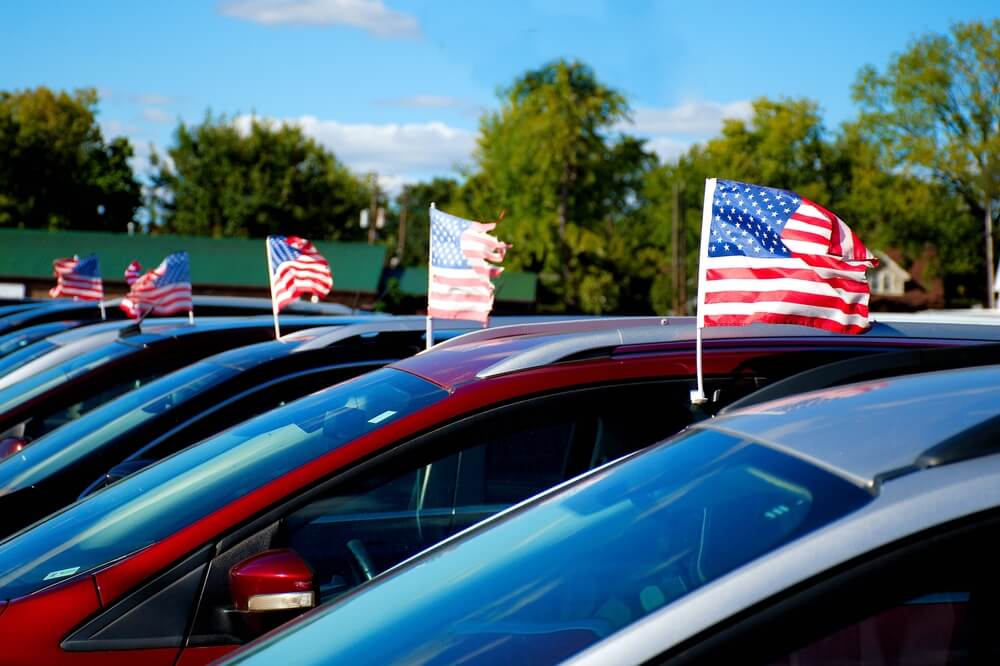
If you are not redirected within 30 seconds, please click here to continue.
Samedi: 10h – 16h HAE

If you are not redirected within 30 seconds, please click here to continue.
If you are not redirected within 30 seconds, please click here to continue.
Does your car insurance policy include collision and comprehensive coverages?

Table of Contents
When purchasing a car insurance policy from any insurance provider, you need to know what you’re covered for and to what extent.
Car insurance policies can be difficult to parse. Essentially, an auto policy is a contract between you and your insurer. Knowing the types of coverage your policy includes, as well as its restrictions, limits, and deductibles ensures you are adequately protected for the price you’re paying.
For instance, do you know if you’re covered in the event your tires are slashed while parked on the street overnight? What if, after returning to your car in a grocery store parking lot, you discover someone has smashed into the back of your vehicle, and fled the scene?
Will your insurance policy pay for damages to your car if you get into a collision while driving?
Your auto policy is not a maintenance contract. It does not cover the costs of wear and tear on your vehicle, or its upkeep. While car insurance policies vary in coverage and price from one insurer to another and in each province, the one you choose to buy needs to be tailored to your specific needs.
Let’s go over what a basic insurance policy covers in Ontario and Alberta and a few coverage options you can add to ensure you’re fully protected.
Don't waste time calling around for auto insurance
Use Rates.ca to shop around, and compare multiple quotes at the same time.
What does a basic Ontario car insurance policy cover?
A basic or mandatory Ontario car insurance policy includes four main elements:
Third-party liability coverage. Third-party liability provides you with protection if you are at fault for an accident, if you injure or kill someone else, or damage property. The mandatory minimum for liability coverage is $200,000 in Ontario, but you can increase your limit up to $5 million.
Direct compensation-property damage. If you are not at fault for a car accident that occurs in Ontario, your insurer will pay for the damage to your vehicle and attached contents, as well as the loss of use of your vehicle.
Read more: You can soon opt out of direct compensation-property damage. But should you?
Uninsured automobile. If you get into an accident with an uninsured driver who is at fault, uninsured automobile coverage, a mandatory part of insurance policies will take care of any medical costs to you and your family, as well as damage to your vehicle. If you are at-fault for the accident, see collision coverage below.
Accident benefits. Whether you are at fault for an accident or not, accident benefits coverage pays for your medical expenses that are not covered by public health care, replaces lost income if you cannot work, and death and funeral expenses if you die from the accident. The mandatory minimum coverage is $65,000 for non-catastrophic injuries and up to $1 million for catastrophic injuries. You can choose to increase the limits of each to $130,000 for non-catastrophic injuries and $2 million for catastrophic injuries.
What optional Ontario car insurance coverages are there?
There is a broad range of optional coverage you can add to a basic Ontario auto policy. Two of the most popular – and among the most important – are collision and comprehensive. These are coverage types you should ask your broker or insurance provider to include in your policy. Here’s a quick breakdown of each:
Collision coverage. Collision coverage will pay for damage to your vehicle if involved in an accident with another car, a streetlight, road sign, or any other stationary object. It also covers the cost of damage if you are a victim of a hit-and-run by an unknown driver. A deductible applies if you file a hit-and-run claim, as well as if it is ruled you are at fault for a collision. Furthermore, an at-fault collision will remain on your driving record for up to six years, and it will influence the cost of your premiums at renewal.
Comprehensive coverage. Comprehensive coverage safeguards your vehicle against damage unrelated to an accident, such as theft, vandalism, or natural disasters. Unlike at-fault collision claims, comprehensive claims don't affect your premium.
All perils and specified perils. All perils combine collision and comprehensive coverage. It also covers loss or damage caused if a person who lives in your home steals the vehicle. Specified perils coverage is a cheaper version of comprehensive coverage that will pay for damages resulting from incidents specified in the policy, such as fire or a natural disaster such as hail.
Related: Specified perils vs. Comprehensive car insurance: What’s the difference?
If you do not have collision coverage and are at-fault for a car accident, you are solely responsible for paying for your vehicle's damages. Similarly, if your policy does not include comprehensive coverage, and your vehicle is stolen, vandalized, or damaged by a fallen tree branch during a nasty windstorm, for example, your insurer is not obligated to pay for any repairs or the cost to replace your stolen vehicle. You are.

What does a basic Alberta car insurance policy cover?
In Alberta, a basic or mandatory car insurance policy includes three main elements. As of January 2022, direct compensation property coverage replaced the property damage portion of the third-party liability coverage.
Third-party liability. Provides you with protection if you are at fault for an accident, if you injure or kill someone else, or damage property. The mandatory amount for liability coverage is $200,000 in Alberta, but you may increase your limit.
Direct compensation for property damage (DC-PD). DC-PD covers vehicle damage, loss of use, and any damaged contents. It does not shield against legal action for injuries. or extend to damage caused by an unidentified or uninsured vehicle. For at-fault drivers, the process remains the same, where the driver goes through additional collision coverage or pays out of pocket. In cases where drivers are considered partially at-fault, the claim will be split accordingly.
Accident benefits. Accident benefits in Alberta cover the cost of your medical treatments that are not covered by public health care if you are injured in a car accident, whether you are at fault or not, to a limit of $50,000 per person. It also includes coverage for replacing lost income if you cannot work, and death and funeral expenses if you die from the accident, as well as any injuries you sustain if you’re in a collision with an uninsured motorist. You can choose to increase the limits of your accident benefits coverage.
Related: Do drivers who’ve had accidents select higher car insurance deductibles?
What optional Alberta car insurance coverages are there?
Like in Ontario, there is optional coverage available for you can add to a basic Alberta auto policy. Commonly known as “Section C” or “Physical Damage Coverage”, these include collision and comprehensive – coverage types you must ask your broker or insurer to include in your policy if you want them.
Collision or upset coverage. Collision coverage pays for damages to your vehicle if you are at-fault for an accident with another car, streetlight, road sign or other stationary object, or if you are the victim of a hit-and-run. A deductible applies if it is ruled you are at fault for a collision, or if you file a hit-and-run claim. As in Ontario, an at-fault collision will remain on your driving record for up to six years, and it will have an impact on the price you pay for insurance at renewal time.
Comprehensive coverage. Comprehensive coverage protects your vehicle against damage unrelated to an accident, such as theft, vandalism, or natural disasters. Generally, filing a comprehensive claim does not affect your premium.
All perils and specified perils coverages. All perils is a combination of collision and comprehensive coverages. Specified perils cover hazards specified in the policy, such as damage caused to a vehicle by fire, lightning, or hail. Specified perils coverage is not as extensive as comprehensive.
Related: What affects the cost of auto insurance in Alberta?

What is the best way to find an affordable car insurance policy?
Understanding what you need to protect yourself, your family, and your vehicle is the first step to take when figuring out the type of car insurance policy to purchase.
Although there are multiple factors insurers take into consideration when determining what your premium is – the type of vehicle, your driving record, claim and insurance history, where you live and other factors – one of the best ways you can find the coverage, you need at an affordable price is to compare policies and premiums for free.
Read next: If you live in Ontario or Alberta, consider these auto insurance endorsements
Get money-saving tips in your inbox.
Stay on top of personal finance tips from our money experts!










